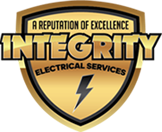Studies show that nearly 51,000 electrical home fires occur each year, resulting in more than $1.3 billion in property damage on an annual basis.
Fortunately, we can minimize the dangers of these electrical hazards by identifying the steps required to eliminate their danger, thereby preventing fatal accidents.
Here are some common electrical hazards in your home that you need to be aware of:
Poor or Outdated Wiring
Worn out, cracked, damaged or corroded electrical wires increase the chance of arc faults, power surges and even fire. Hire a licensed electrician to inspect if your wiring is safe—especially if the wiring in your house is over 30 years old. Replace and upgrade old faulty wires, if required.
Some hazards include:
- Frayed extension cords
- Cracked wire insulation as a result of age, heat, bending or corrosion
- Damaged electrical appliances
- Loose or improper connections
- Overheated cords or wires
- Pinched, pierced or chewed on cords
Outlets near Water Sources
Make sure that the outlets in the kitchen and bathrooms are installed at fair distance from the water source. In case a plugged-in appliance gets wet, don’t make the mistake of unplugging it with bare hands. First turn off the power source of the outlet and then unplug the appliance.
Rule of thumb: never use a hair dryer, radio or any electrical device near the pool, bathroom or anywhere that has a wet floor.
Moreover, installing Ground Fault Circuit Interrupter (GFCI) outlets is an effective way of minimizing the risk of electric shocks. GFCIs cut off the power immediately in case of electrocution, preventing the individual from serious injury.
Overloaded power strips and outlets
We get it; it’s convenient to plug all your devices into a single power strip, but this could easily start a fire. Make sure you aren’t demanding more voltage from the outlet than it can handle. If the outlet trips a circuit breaker, it’s time to unplug a few devices.
Furthermore, keep in mind that extension cords should only be used temporarily; they should never run through ceilings or walls because they can easily overheat. Plus, stretched out extension cords leave you vulnerable to tripping or breaking the cord.
Get an electrical safety inspection today!
A safety inspection will ensure that your electrical components and home wiring are in working order and don’t pose a hazard to your family. Our licensed electrical safety inspectors in Wilmington, MA, are experts in home safety and guarantee your facility is in compliance with the electrical code.
Call us today to schedule an extensive safety inspection.



